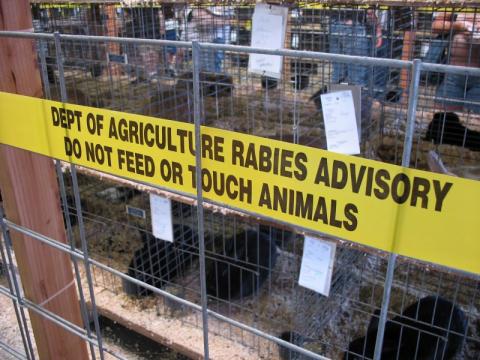PHA warns travellers on the risk of rabies

For those lucky few who are escaping the rain to enjoy warmer climates over the summer months, the Public Health Agency (PHA) is taking the opportunity to remind them about the risk of catching rabies from animals.
As holiday makers and students taking a gap year prepare to travel abroad, they can often forget the importance of seeking medical advice on whether the country or countries they are visiting require vaccinations against some serious diseases.
With international travel can come an increased health risk, and immunisation is essential when visiting certain countries to ensure a safe and enjoyable experience.
Rabies is an acute viral infection and it is essential to get treatment if you have been bitten, as rabies is almost certainly fatal. The infection causes swelling of the brain and symptoms usually start 2–8 weeks after being bitten or scratched. Early-stage symptoms of rabies include malaise (feeling of general discomfort or uneasiness), headache and fever, progressing to acute pain, violent movements, uncontrolled excitement, depression, and hydrophobia (panic when presented with liquids to drink and an unquenchable thirst).
Dr Michael Devine, Consultant in Health Protection, PHA, said: “Rabies is spread through animal saliva, usually a bite, but it can also be spread through a scratch or by an animal licking a cut or wound, or saliva getting into the eyes, mouth or nose. It cannot be transmitted through intact skin. It is commonly spread by dogs, but can be spread by other mammals, including cats and monkeys. You cannot tell if an animal has the disease as they may appear well.”
He continued: “People may be used to thinking about rabies when they go to more exotic locations like Asia and Africa, but it can also be present closer to home, such as in some eastern European countries. So it is always best to play it safe and avoid animals, especially strays.”
People who should be immunised against rabies include those who work with animals and travellers to remote areas where medical help is not available. The rabies vaccine is very effective – almost 100%. Booster doses may be required after one year and then every 2–5 years for people who continue to be at risk.
If you are bitten by an animal while abroad seek medical attention immediately, even if you have been previously immunised, as treatment may be given to reduce risk of developing the disease.
